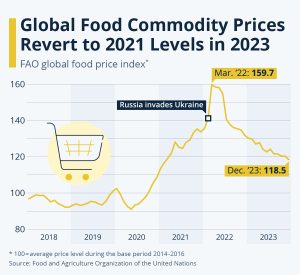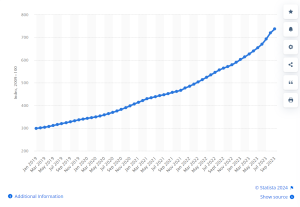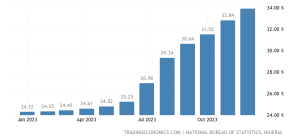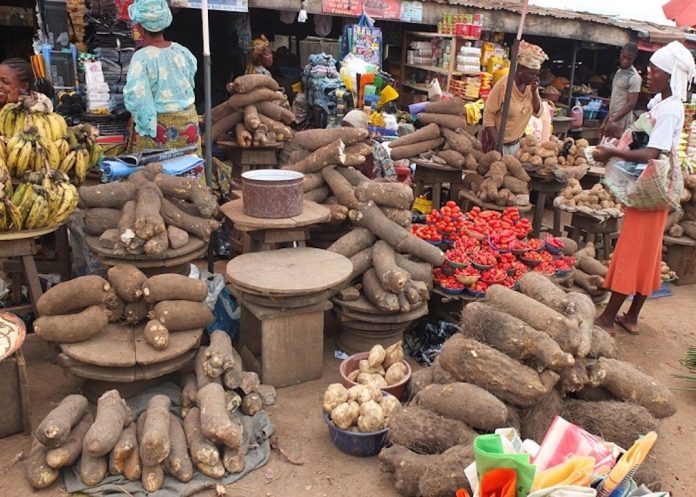A FAO Food Price Index states that global food commodity prices had fallen back to 2021 levels in 2023.
The Food and Agriculture Organization [FAO] is a specialized agency of the United Nations that leads international efforts to defeat hunger and improve nutrition and food security.
According to reports, previously, global food prices had surged to record highs in 2022 amid pandemic effects and Russia’s invasion of Ukraine. The index stood at 118.5 points in December, indicating an 18.5 percent increase in global food commodity prices compared to the 2014-2016 base period.

It had hit a high of nearly 160 points in March 2022 shortly after the invasion of Ukraine.
Even before, food prices had surged during 2021 as supply and demand disruptions affected many goods during the pandemic and harvest setbacks also added to the development.
“The war in Ukraine has a big impact on the cereal price subindex, one of five indices that make up the FAO Food Price Index. After all, the region is often referred to as the world’s breadbasket due to its major role in global grain supplies,” notes Statista, a German online platform that specializes in data gathering and visualization.

The price of global cereal commodities actually drove up the Food Price Index in December as disruptions to Black Sea grain transport occurred. However, the issues weren’t near as severe as at the beginning of the war, causing the subindex to increase by 1.8 points from November.
The development was, however, offset by a big slump in the sugar price subindex, which lost 26.8 points due to overproduction in Brazil.
The Vegetable Oil Price Index as well as the Meat Price Index were down slightly between November and December amid weaker demand, while the Dairy Price Index also rose slightly due to holiday demand in Europe and general demand in the Near East.
Overall, the index lost 1.8 points month-over-month.
 Nigerian food situation
Nigerian food situation
Conversely, as reported by online platform, Trading Economics, cost of food in Nigeria increased 33.93 percent in December of 2023 over the same month in the previous year.
Quoting figures from the National Bureau of Statistics, the platform notes that food Inflation in Nigeria averaged 13.04 percent from 1996 until 2023, reaching an all-time high of 39.54 percent in September of 2001 and a record low of -17.50 percent in January of 2000.
Statista reports that, in September 2023, the Consumer Index Price of food in Nigeria stood at 737.3, increasing from the previous year.
Consumer price index is a measure that examines the changes in the purchasing power of a currency.
It measures changes in the price level of the market basket of consumer goods and services purchased by households.
The movement of the Consumer Price Index is the main measure for inflation rate.


